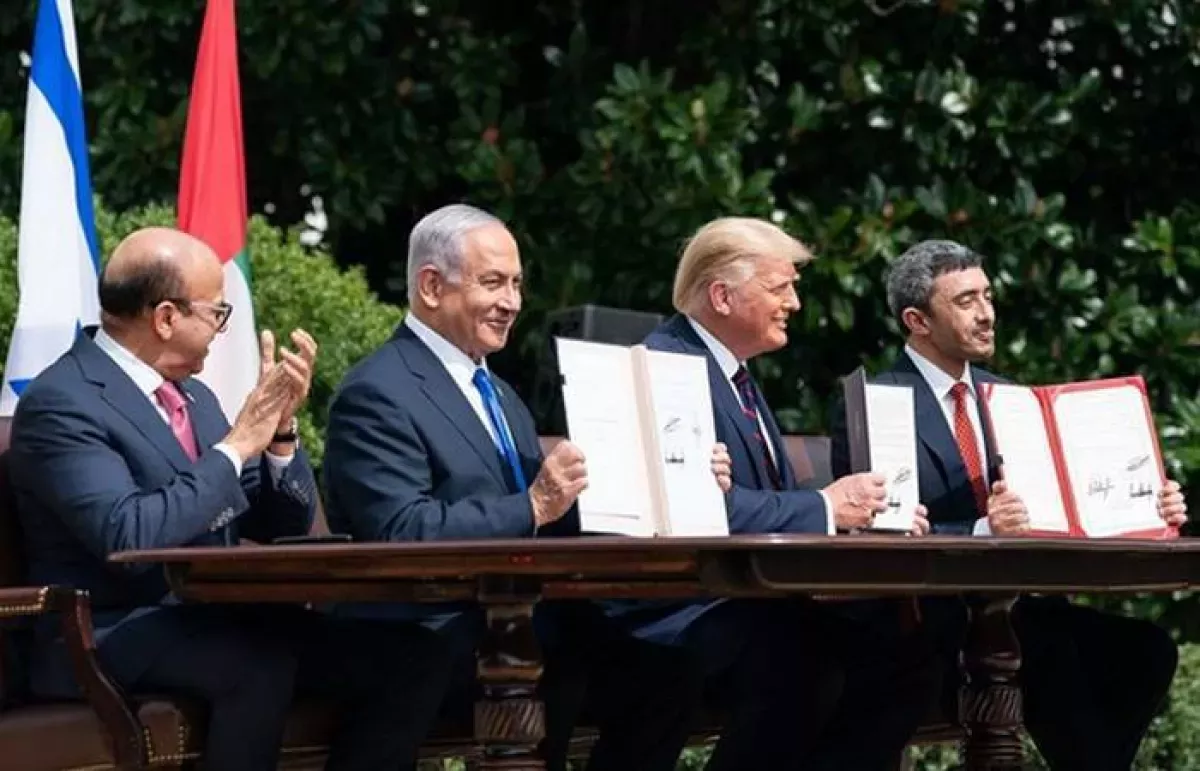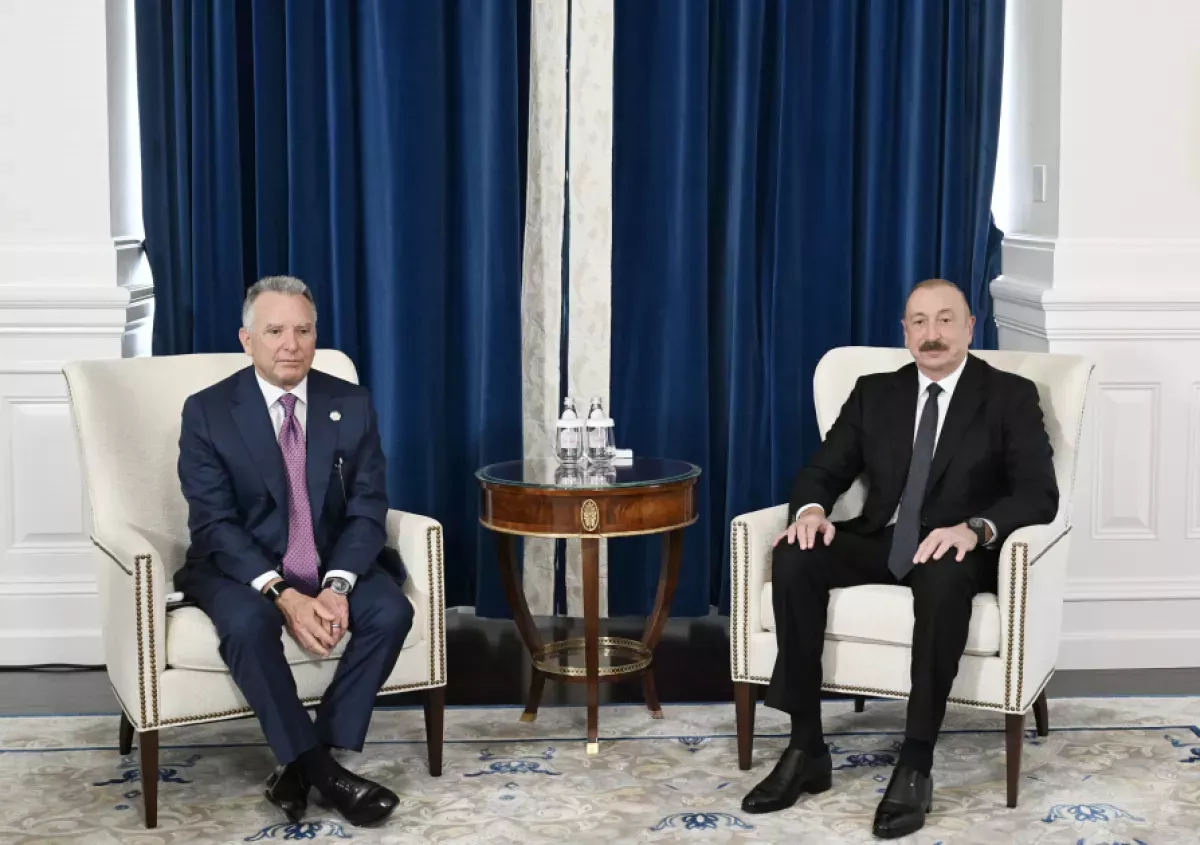Trump unites regions: From the Gulf to the Caspian In Pursuit of Peace
Recently, U.S. President Donald Trump called on all Middle Eastern countries to join the Abraham Accords, which aim to normalise relations with Israel.
“Now that the nuclear arsenal being “created” by Iran has been totally OBLITERATED, it is very important to me that all Middle Eastern Countries join the Abraham Accords. This will insure PEACE IN THE MIDDLE EAST. Thank you for your attention to this matter!” he wrote on social network Truth Social.
Background by Caliber.Az. The Abraham Accords are a series of agreements aimed at normalizing relations between Israel and several Arab countries, signed between 2020 and 2021. The first administration of U.S. President Donald Trump (2017–2021) played a key role in brokering these agreements. The initial Abraham Accords, which included peace treaties between Israel and the United Arab Emirates (UAE) and between Israel and Bahrain, were signed on September 15, 2020. The establishment of diplomatic relations between Israel and the UAE and Bahrain marked the first instance of Arab-Israeli normalisation since 1994, when Israel and Jordan signed a peace treaty. On December 22, 2020, Morocco joined the Abraham Accords by signing a peace agreement with Israel. One year later, on November 24, 2021, then-time Israeli Defence Minister Benny Gantz signed a memorandum of understanding on security cooperation with the incumbent Moroccan Defence Minister Abdellatif Loudiyi. This was the first time Israel openly signed such an agreement with an Arab state, officially solidifying cooperation in the security sphere and enhancing interaction between their defence ministries.
On January 6, 2021, Sudan began the process of joining the Abraham Accords by signing the "Declaration on the Abraham Accords" in Khartoum. In April, Sudan repealed a 1958 law that prohibited relations with Israel. However, Sudan has not completed the normalisation process and has yet to sign a full peace treaty.

Donald Trump considers the Abraham Accords one of the main achievements of his previous presidential term and now seeks to consolidate this success. In May, the U.S. president’s special envoy Steve Witkoff stated that Lebanon, Libya, Saudi Arabia, and Syria could soon join these agreements. Earlier, Trump himself suggested that Saudi Arabia might sign the accords as early as the end of 2025.
Thus, Donald Trump’s initiative to bring Middle Eastern countries into the Abraham Accords is clear and straightforward, reflecting two key pillars of his Middle East policy: unwavering support for Israel and unequivocal opposition to Iran’s nuclear program. Washington’s approach is based on the following factors.
First, Israel is the United States’ key strategic ally outside of NATO, which grants Tel Aviv prioritized access to American military technologies and cutting-edge developments. In turn, the Jewish state provides the U.S. with a strategic foothold in the Middle East, offering valuable intelligence and technological partnership. Notably, during the Cold War, Israel served as a counterbalance to Soviet influence in the region—an area that has always been at the center of great power interests.
In other words, Tel Aviv advances American interests in the Middle East, which obliges the U.S. to ensure Israel’s security in the region as much as possible—including by encouraging Arab countries to join the Abraham Accords.
Secondly, it is important to note that most Arab states, especially those that view Iran as a geopolitical rival, are seriously concerned about and oppose Iran’s nuclear program. The main reasons are deep distrust of the Iranian theocratic regime and external threats to regional security. These two factors work in favour of the U.S., thereby increasing the likelihood of more Arab countries joining the Abraham Accords.
From the U.S. perspective, Washington’s interest in expanding the Abraham Accords by including post-Soviet republics seems highly strategic and appropriate.
It is no coincidence that The Times of Israel noted that the Donald Trump administration is actively discussing the possibility of Azerbaijan and several Central Asian countries joining the Abraham Accords, hoping to deepen their ties with Israel.

The article notes that Trump’s special envoy, Witkoff, visited Baku in March to meet with President Ilham Aliyev.
“Witkoff’s main aide, Aryeh Lightstone, also met with Ilham Aliyev in the spring, discussing the Abraham Accords,” The Times of Israel reports.
Baku has long been a strategic partner of Israel and has developed a stable cooperation with the Jewish state. This explains why negotiations regarding Azerbaijan are conducted more systematically and thoroughly than with other potential participants.
The U.S. interest in involving Central Asian countries in the Abraham Accords is also quite logical, as this region holds significant strategic importance—not least for Russia. By expanding the Abraham Accords, the United States aims to advance its interests not only in the Middle East but also in regions traditionally within Russia’s sphere of influence.
Thus, amid the emergence of a new world order, the United States will take all necessary measures to reinforce its status as the dominant power, employing every possible means to sideline its key geopolitical rivals. In this context, the inclusion of countries from the Middle East, the South Caucasus, and Central Asia into the Abraham Accords represents a crucial link in the broader foreign policy strategy of the White House.








